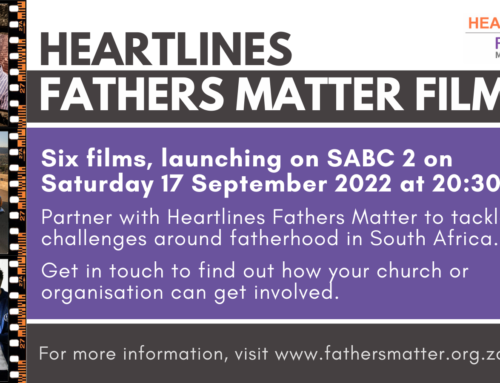A while back someone asked me to write a blog post or series about Doubt and i already had this post’s heading sitting in my draft box waiting to be written.
So today i try to write it…
…and was doing really well…
…at least until i Uncle Googled what the bible had to say about doubt which totally threw my argument on its head.
But let me share it anyway – maybe you’re smarter than me in terms of joining the dots… or maybe this is just messy and worth wrestling with and it’s okay if we don’t reach a definitive result [gasp!]
What is the opposite of Faith? It’s Doubt.
Was the mantra we had growing up. And it kinda sounds like it makes sense, right? If faith is believing, then doubt which is not believing, must be the opposite.
Until some smug christian-type got up to the mic and boldly declared that, ‘No! The opposite of faith is certainty!’
WAIT? WHAT???
Think about it for a moment. If you are required to have faith, then you can’t be certain about something, and so there must be some measure of doubt present, right?
That made a lot of sense to me. And i stole it and used it in a whole bunch of talks and preaches since then.
It’s not not believing, but more not being absolutely sure that what you are believing in is right.
Faith comes from a place of not being certain and so you need to hold on to something, or express something – that is, faith – to move towards that place.
Which means that Faith and Doubt are like conjoined twins. Or a koeksuster.
Yes, you heard it here first. The Koeksuster of Faith. [An analogy, that if successful enough, will have people bringing koeksusters to camps for me when i speak, you know “so that i can use it for an illustration”]
For those foreigners who don’t know what a koeksuster is, the graphic is pretty self explanatory – sweet crunchy doughy goodness, folded around itself like a braid. It’s hard to tell where one piece ends and the next begins [or is it all just one piece?]
The point i was hoping to make is that doubt it okay. It is normal and natural and okay to have.
That is, until i started reading the book:
From James 1:
6 But when you ask, you must believe and not doubt, because the one who doubts is like a wave of the sea, blown and tossed by the wind. 7 That person should not expect to receive anything from the Lord. 8 Such a person is double-minded and unstable in all they do.
In Matthew 21:
21 Jesus replied, “Truly I tell you, if you have faith and do not doubt, not only can you do what was done to the fig tree, but also you can say to this mountain, ‘Go, throw yourself into the sea,’ and it will be done. 22 If you believe, you will receive whatever you ask for in prayer.”
And in Matthew 14 when Peter joins Jesus on the water:
28 “Lord, if it’s you,” Peter replied, “tell me to come to you on the water.”
29 “Come,” he said.
Then Peter got down out of the boat, walked on the water and came toward Jesus. 30But when he saw the wind, he was afraid and, beginning to sink, cried out, “Lord, save me!”
31 Immediately Jesus reached out his hand and caught him. “You of little faith,” he said, “why did you doubt?”
Hokay, so wow, this is where it gets a little complicated. Or maybe simple? Because the strong instruction here seems to be to not doubt.
Not doubting seems to be quite closely tied to the miraculous here [water walking and mountain moving] which i definitely have not personally observed all that much of.
URGH, SO WHERE DOES THAT LEAVE ME?
i did find that on the Internets and i do like that as an idea to consider and wrestle with and maybe hold on to. Your thoughts?
That when doubt strikes or in times of struggling faith, don’t throw out everything that you planted or held to when your faith was there. Because doubt can be something that strikes for a moment or season and sometimes when you’re doubting it can be uber helpful to look back to the times when your faith was strong and remember what sustained you in those times.
i think i would rewrite this as, ‘Be slow to dig up in doubt what you planted in faith.’ Because some things do need to go. Especially if your faith proves to have been misguided or in the wrong thing. But the point is don’t rush to break down things that used to make a lot of sense to you – so important to critique, challenge and question in a healthy way [which, sadly, the church has too often been a little scared to let us do because we might lose all faith and leave the building] but to do so positively and in a way that is healthy and helpful for all concerned.
Then i discovered this short verse in the book of Jude right at the end of the bible, which also brought me some hope:
And in Jude 1:
20 But you, dear friends, by building yourselves up in your most holy faith and praying in the Holy Spirit, 21 keep yourselves in God’s love as you wait for the mercy of our Lord Jesus Christ to bring you to eternal life.
22 Be merciful to those who doubt; 23 save others by snatching them from the fire; to others show mercy, mixed with fear—hating even the clothing stained by corrupted flesh.
The instruction to be merciful to those who doubt. Phew! So doubting is not the ideal situation to be in, but provision is given for me at least.
i have a whole lot more to say on a more personal experiential note, but i will keep that for a follow-up post – in the meantime i will leave you with this inspirational piece of writing to see if you agree with it or not. And i would really love for you to share some thoughts you have on doubt.
Do you think Doubt is always good or always bad? Or do you see there being a helpful relationship between them? And if so, how do you balance that with the verses above? Do they suggest to us that all Doubt is always bad? Tell us what you think.











You’re definitely closer to the truth here than the Faith & Denial club! That is a dangerous koeksister, if there ever was one! (I mean those that are in denial about everything that doesn’t match their specific and often narrow understanding of a specific bible verse)
The word in James 1:6 translated denial is diakrinō, which literally means to sever or separate and so faith without doubt is simply resolute faith. It does not mean that you never wonder about things and question them. It does however mean that once you get the idea, you stick to your guns. Of course, if you find out that you stuck to something that you were mistaken about, you change. Sadly, this is the part that is neither encouraged nor practised much in churches, but it should be. Not willy-nilly, but in all seriousness.
We don’t know everything and don’t understand things fully, so we should make ample room to correct our beliefs. That includes questioning and doubting things. So when James says we should ask God for wisdom in faith, it has nothing to do with not doubting certain things, but rather all to do with firmly believing that God hears you and sticking to that until you hear from Him or see the results and gain the wisdom you asked for.
Pulling “proof-texts” out of context is the mother of all heresies and that goes for faith texts as well.
Thankx for stopping by, Roland. And for sharing these helpful thoughts. We have a story filled with questioning and struggles with belief or understanding what God was up to and so to suddenly expect people today to “just have faith” in the face of a question, doubt or struggle feels disingenuous. I like the way you unpacked the James verse here. Simple and straightforward.
Thank you
Love brett fish
On a slightly technical note: when I bump into the “bigger question” type things I find “The Mounce Reverse-Interlinear New Testament” to be immensely helpful. Fortunately it’s online at BibleGateway.com. It helps to see the origins of the words James, Paul, Peter or whoever chose to share what they had to share, especially since we don’t have much of a clue how they really lived and thought!
Will check it out, thankx
[…] [To return to part I of the Koeksuster of Faith, click here] […]
I think people often mistake their lack of faith in people, their doubt in doctrines, and what they have been taught by man, for doubt or lack of faith in God.
as someone who wrestles with issues of doubt and faith and has learnt to live in a way that accepts paradox I really liked your koeksuster illustration
Ooh, yay, thanks. And thank you for stopping by.